Nigeria
Boko Haram's leader Abubakar Shekau killed himself in a fight against rival jihadist fighters from the Islamic State West Africa Province (ISWAP) according to audio AFP obtained from the group Sunday, two weeks after reports emerged that he had died.
His death marks a major shift in Nigeria's 12-year-old jihadist insurgency that has killed more than 40,000 people and displaced around two million in the northeast.
Boko Haram has not yet officially commented on the death of their leader while the Nigerian army said it was investigating the claim.
"Shekau preferred to be humiliated in the hereafter to getting humiliated on Earth. He killed himself instantly by detonating an explosive," said a voice resembling that of ISWAP leader Abu Musab Al-Barnawi, speaking in the Kanuri language.
The audio, which was not dated, was given to AFP by the same source who conveyed previous messages from the group.
ISWAP described in the audio how it sent fighters to Boko Haram's enclave in the Sambisa forest, that they found Shekau sitting inside his house and engaged him in a firefight.
"From there he retreated and escaped, ran and roamed the bushes for five days. However, the fighters kept searching and hunting for him before they were able to locate him," the voice said.
After finding him in the bush, ISWAP fighters urged him and his followers to repent, the voice added, but Shekau refused and killed himself.
"We are so happy," the voice said, describing Shekau as "the big troublemaker, persecutor and destructive leader of the nation."
ISWAP split from Boko Haram in 2016, objecting to Shekau's indiscriminate targeting of Muslim civilians and use of women suicide bombers.
Atrocities
"This was someone who committed unimaginable terrorism and atrocities. For how long has he been leading people astray? How many times has he destroyed and abused people?" the voice said.
In the past two years, ISWAP emerged as the more dominant force in the region, carrying out large-scale attacks against the Nigerian military.
As the group now looks to absorb Shekau's fighters and territory, Nigeria's army potentially faces a more unified jihadist force, analysts say.
But ISWAP may also struggle to control or persuade Boko Haram factions loyal to Shekau outside Sambisa, especially in border areas.
"It may not be over yet," one security source said. "ISWAP will have to subdue or convince these camps to coalesce (them) into its fold to fully consolidate its control."
Jihadist infighting may present opportunities for Nigeria's army to seize.
But should ISWAP absorb part of Shekau's men and weapons, it might be in a position to cut off roads to and from the Borno state capital Maiduguri, said Peccavi Consulting, a risk group specializing in Africa.
"If ISWAP convinces Shekau's forces to join them, they will be controlling the majority of the enemy forces as well as having a presence in most of the ungoverned spaces in the northeast," it said in a note.
Since 2019, Nigeria's army has pulled out of villages and smaller bases to hunker down in so-called "supercamps", a strategy critics say allows jihadists to roam free in rural areas.
Following its takeover of Sambisa, ISWAP sent messages to locals in the Lake Chad region, telling them they were welcome to its self-declared "caliphate", said Sallau Arzika, a fisherman from Baga.
Locals were chased out of the lake islands after ISWAP accused them of spying for the military. Al-Barnawi said they could now return for fishing and trading after paying tax, with the assurance they would not be harmed, Arzika said.
AFP




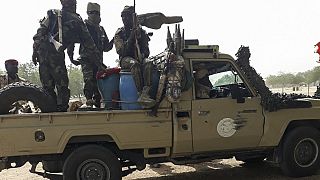
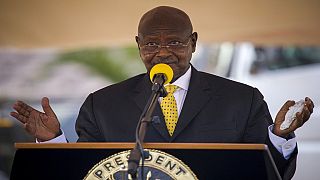
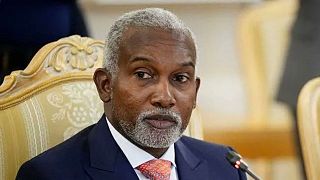

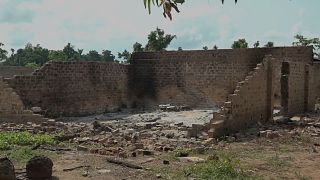
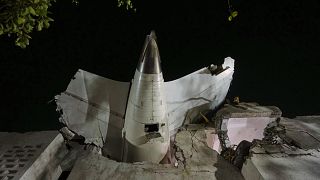


01:13
17 soldiers killed as gunmen raid army bases in northern Nigeria
01:39
Hundreds dead and missing after Nigerian town submerged by floods
Go to video
Boko Haram resurgence: the Nigerian army's constant challenges
00:57
Nigeria crisis: 20,000 flee Marte after militant attacks
Go to video
Biggest refugee camps in northeastern Nigeria to close in next weeks, governor said
00:51
Bomb Blast Kills 26 in Northeast Nigeria